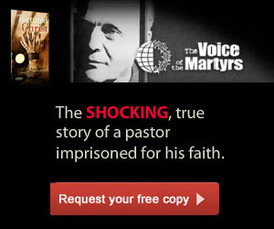Members of the House of Lords debated the security, humanitarian and human rights situation in North Korea yesterday, and called on the United Kingdom to support proposals for an international inquiry into crimes against humanity in North Korea.
The debate, introduced by Lord Alton of Liverpool, Chairman of the All Party Parliamentary Group on North Korea, included a detailed discussion of North Korea’s human rights record highlighting, among other violations, systematic persecution of Christians and other abuses of freedom of religion or belief, as well as executions, forced abortions and torture.
The debate, introduced by Lord Alton of Liverpool, Chairman of the All Party Parliamentary Group on North Korea, included a detailed discussion of North Korea’s human rights record highlighting, among other violations, systematic persecution of Christians and other abuses of freedom of religion or belief, as well as executions, forced abortions and torture.
In his speech, Lord Alton said, “The evidence given to our committee ... include accounts of executions, torture, detention, forced labour, trafficking, religious persecution and the “guilt by association” policy, which leads to the arrest, imprisonment and punishment of detainees’ families for up to three generations. We have also heard of women impregnated by Chinese men facing forced abortions or infanticide following deportation by China ... North Korea has never allowed United Nations special rapporteurs on human rights to enter the country, but with 25,000 North Koreans living in the south and an estimated 100,000 living illegally in China, there would be no shortage of evidence for such an inquiry to assess.”
Baroness Cox of Queensbury, Vice-Chairman of the APPG on North Korea, who has travelled to Pyongyang with Lord Alton on three occasions to raise human rights concerns with the regime, described the stories of five North Koreans who have given evidence in Parliament in previous years. Her call for a UN Commission of Inquiry was echoed by several other Peers, including Baroness Berridge, who referred to “a letter which 179 former North Korean political prisoners and defectors recently wrote to the foreign ministers of a number of UN countries appealing for their Governments to support an international inquiry into crimes against humanity in the DPRK.”
The need to increase the flow of information into North Korea, aimed, as Baroness Cox argued, at “breaking the information blockade”, was highlighted by several Peers, and a specific recommendation was made that the BBC World Service should start a Korean language broadcast service, to reach North Korea.
Andrew Johnston, Advocacy Director at Christian Solidarity Worldwide, said, “We warmly welcome yesterday’s debate, which once again shines a spotlight on what is one of the darkest, most oppressed, most dangerous and most closed corners of the world, North Korea. We pay tribute to Lord Alton and Baroness Cox for the leadership and commitment they have shown over the past decade on North Korea, and we welcome the contributions of other Peers who have joined the growing chorus of voices around the world calling for a UN Commission of Inquiry. With the recommendations from the UN High Commissioner for Human Rights, the UN Special Rapporteur for Human Rights in North Korea, human rights NGOs around the world, 179 North Korean defectors, members of the US Congress and the UK Parliament, and others, we believe the time has come for the UN to respond, and for the United Kingdom and other European Union member states to take the lead in ensuring that this long over-due inquiry takes place, and the perpetrators of crimes against humanity in North Korea are held accountable.”
Baroness Cox of Queensbury, Vice-Chairman of the APPG on North Korea, who has travelled to Pyongyang with Lord Alton on three occasions to raise human rights concerns with the regime, described the stories of five North Koreans who have given evidence in Parliament in previous years. Her call for a UN Commission of Inquiry was echoed by several other Peers, including Baroness Berridge, who referred to “a letter which 179 former North Korean political prisoners and defectors recently wrote to the foreign ministers of a number of UN countries appealing for their Governments to support an international inquiry into crimes against humanity in the DPRK.”
The need to increase the flow of information into North Korea, aimed, as Baroness Cox argued, at “breaking the information blockade”, was highlighted by several Peers, and a specific recommendation was made that the BBC World Service should start a Korean language broadcast service, to reach North Korea.
Andrew Johnston, Advocacy Director at Christian Solidarity Worldwide, said, “We warmly welcome yesterday’s debate, which once again shines a spotlight on what is one of the darkest, most oppressed, most dangerous and most closed corners of the world, North Korea. We pay tribute to Lord Alton and Baroness Cox for the leadership and commitment they have shown over the past decade on North Korea, and we welcome the contributions of other Peers who have joined the growing chorus of voices around the world calling for a UN Commission of Inquiry. With the recommendations from the UN High Commissioner for Human Rights, the UN Special Rapporteur for Human Rights in North Korea, human rights NGOs around the world, 179 North Korean defectors, members of the US Congress and the UK Parliament, and others, we believe the time has come for the UN to respond, and for the United Kingdom and other European Union member states to take the lead in ensuring that this long over-due inquiry takes place, and the perpetrators of crimes against humanity in North Korea are held accountable.”


 RSS Feed
RSS Feed